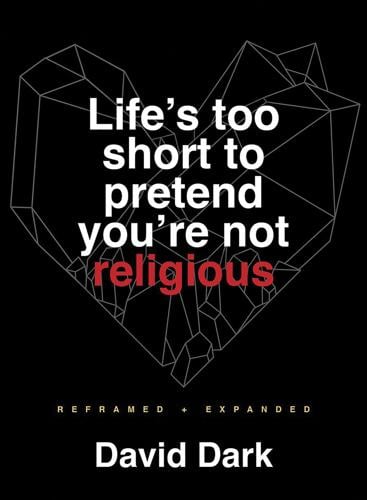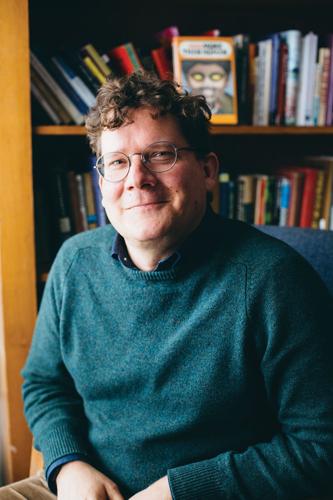
In his 2009 book The Sacredness of Questioning Everything, David Dark urged his readers to “submit everything we’re up to, at work and at play, to the discipline of sacred questioning.” He’s taken that advice to heart in his subsequent books, and now he’s carried the interrogation process a step further by revisiting 2016’s Life’s Too Short to Pretend You’re Not Religious, offering a “reframed and expanded” new edition.
The essence of Life’s Too Short can be found in a line that appears in both versions of the book: “Our real sense of what’s really sacred is regularly on display.” There is, in Dark’s view, no escaping our sacred selves or our intersections with the sacred in others. He’s now considering that idea anew during a time when “something is being revealed (or shaken loose) when it comes to our relationship with institutionalized power, which of course is our relationship with ourselves and the natural world.”
Dark, a Nashville native, teaches in the College of Theology & Christian Ministry at Belmont University and at the Tennessee Prison for Women. He answered questions from Chapter 16 by email.

The idea of religion as “perceived necessity” is central to the book, and the word “perceived” seems designed to upend conventional notions of religion, which don’t usually leave much room for subjectivity or relativism. In your view, is all religion relative? Are there any absolutes?
Whatever we have in mind when we speak of religion is certainly relative to context. I find it helpful to distinguish between good and bad, true and false religion. Like culture, it comes in many forms. I suppose there are what I think of as absolutes across cultures, such as the imperative to not do to someone else what I’d hate to have done to me. True religion, it has been alleged, is looking after the orphaned, the widowed and the marginalized. I like the sound of that because it need not have anything to do with believing (or not believing) in God. Defining religion as “perceived necessity” broadens the concept to include all human activity. It also makes way for affirmations like this: Whatever lore helps you love yourself and others more is lore enough.
“Spiritual abuse” is a term you use pretty often, but I’m not entirely certain what you mean by it. What separates it from ordinary manipulation and gaslighting?
I think plain old abuse becomes spiritual abuse the moment I speak or act as if I’m an authority in someone else’s experience. It’s subtle but sometimes not at all subtle. It’s a refusal to honor another person’s boundaries because I believe (or wish to imply) that I’m closer to God or more intimately familiar with God’s purposes than someone else. It’s a form of violence, whether in speech or behavior, in which I try to deny someone the right to assess their own thoughts, feelings or experiences without me or, more broadly, apart from the community or tradition I imagine I’m adhering or being true to.
There’s a common argument that religion and politics can and should be separate, but you write that they’re often “two words for one thing.” Can you explain what you mean by that?
You bet. I worry over the way unexamined abstractions (religion, politics, media) can serve as a tool for blaming most everything and anything — including my own behavior — on someone else. The essential questions (Who is my neighbor? What do we owe each other? How do I go about enjoying my own life?) are all ineluctably religious and political.
You write, “When we label people, we no longer have to deal with them thoughtfully.” You also acknowledge the importance of naming things, and at one point say bluntly that “a lot of us are beginning to realize that we’ve been tied to a network of bigots for most of our lives.” What’s the difference between labeling and naming?
This is a lovely question. Labels, it seems to me, don’t work on persons because a person is a process. I can’t fix on a person because they’re always more than whatever I think I have in mind, even when, for instance, I call them bigots. Nobody’s just a bigot. But … I nevertheless feel compelled to speak of networks of bigots, especially in recent years, because we have to name what’s happening. We have to name the public-safety threats posed by bigots and those who coddle them. I don’t think anybody wants to be a bigot, but I know feelingly what bigoted speech, behavior and legislation are doing to us. We have to name it as bigotry the better to stand up to, resist and overcome it. Otherwise, we normalize it. And it’s clear to me that, in a deep sense, we become what we normalize.
To read an uncut version of this interview — and more local book coverage — please visit Chapter16.org, an online publication of Humanities Tennessee.






